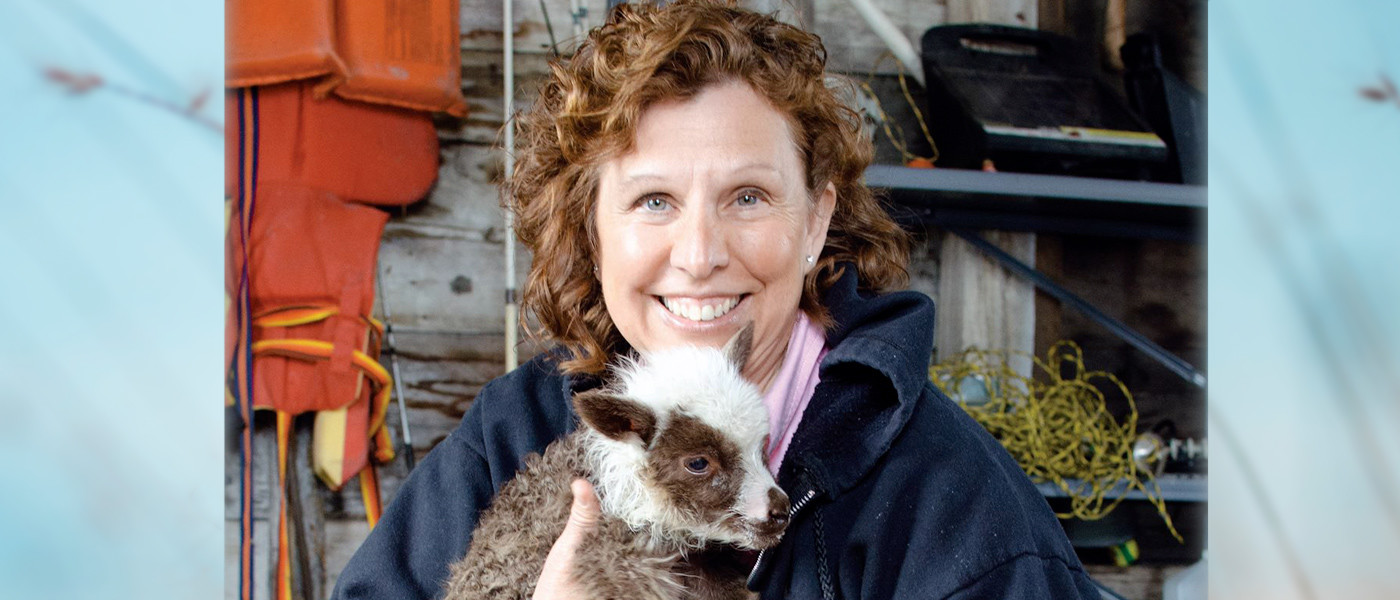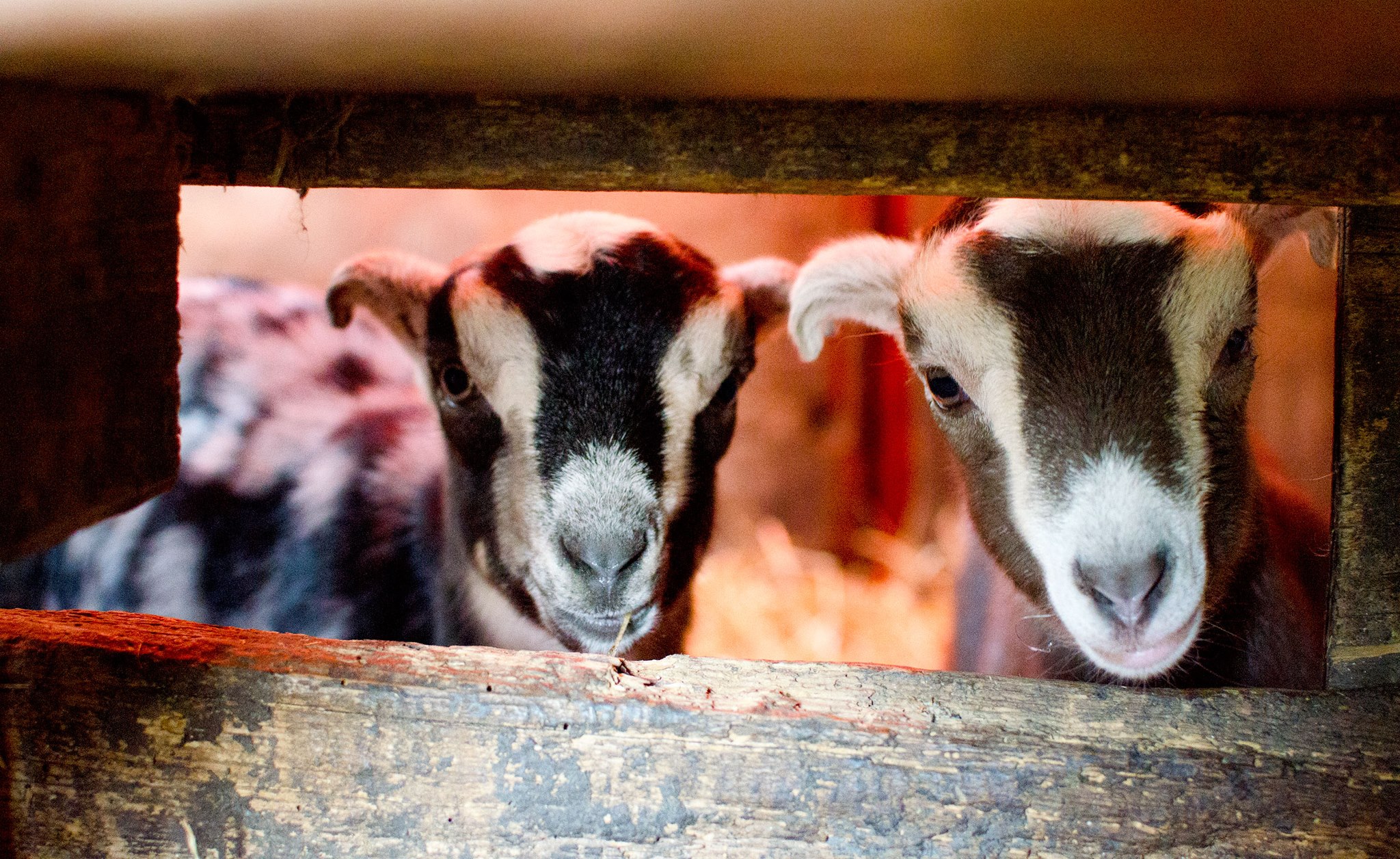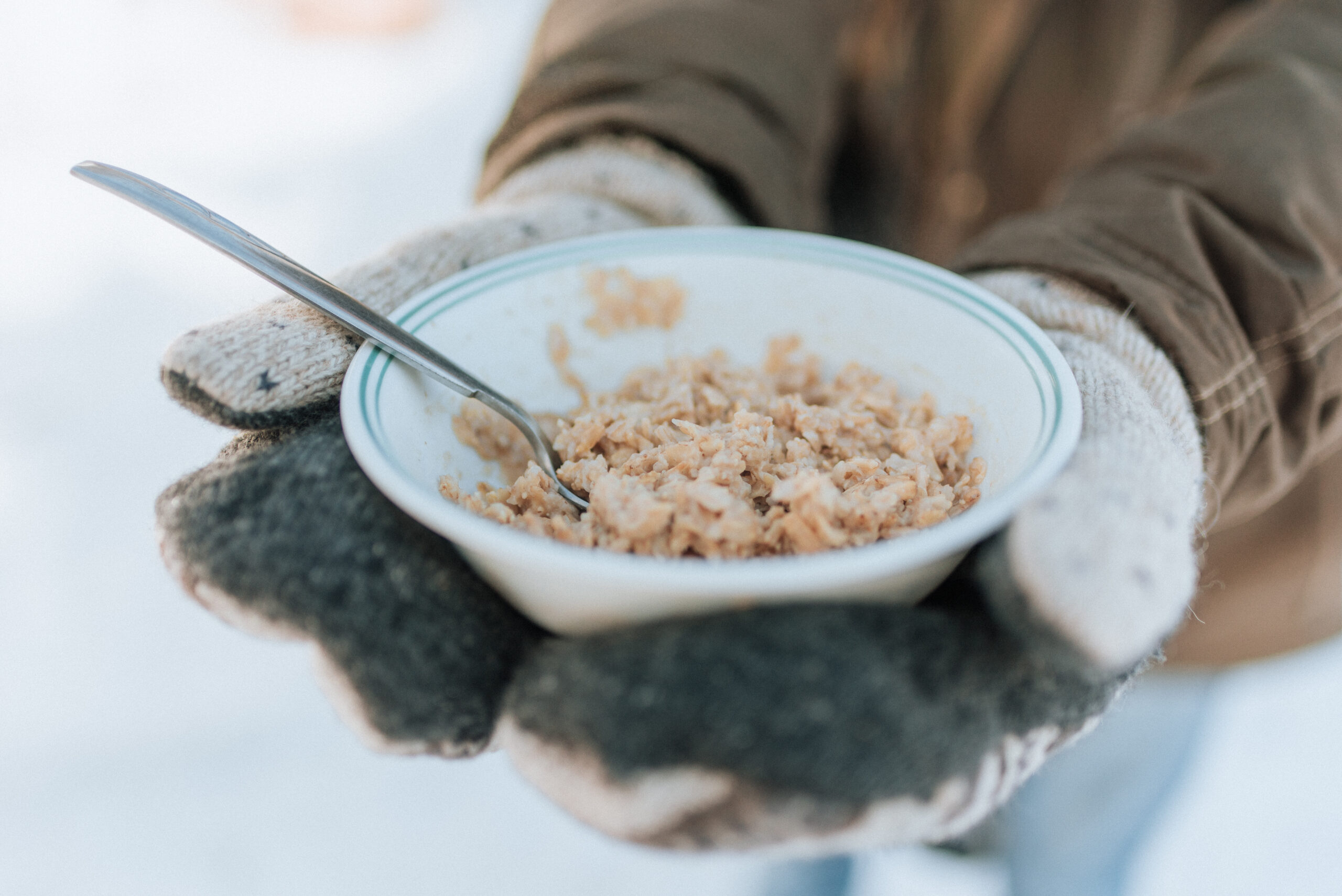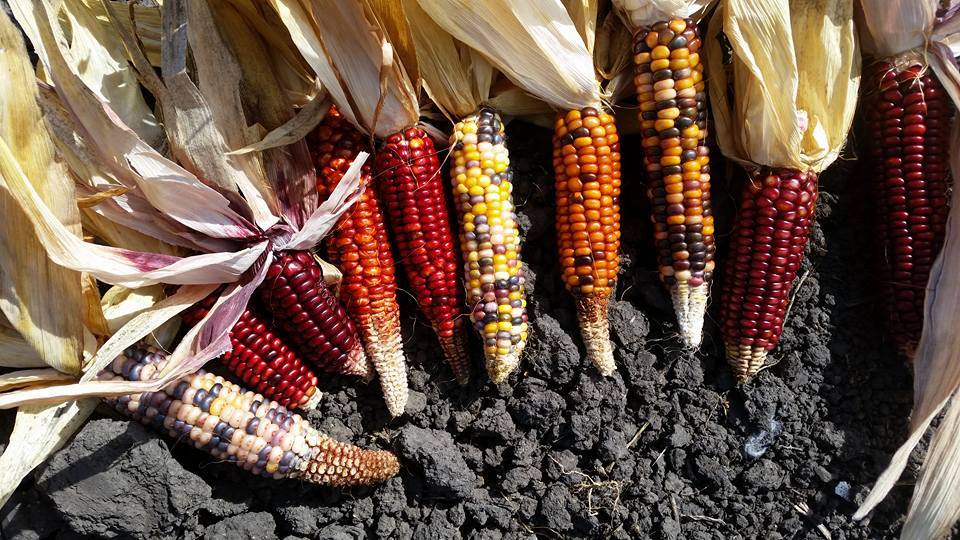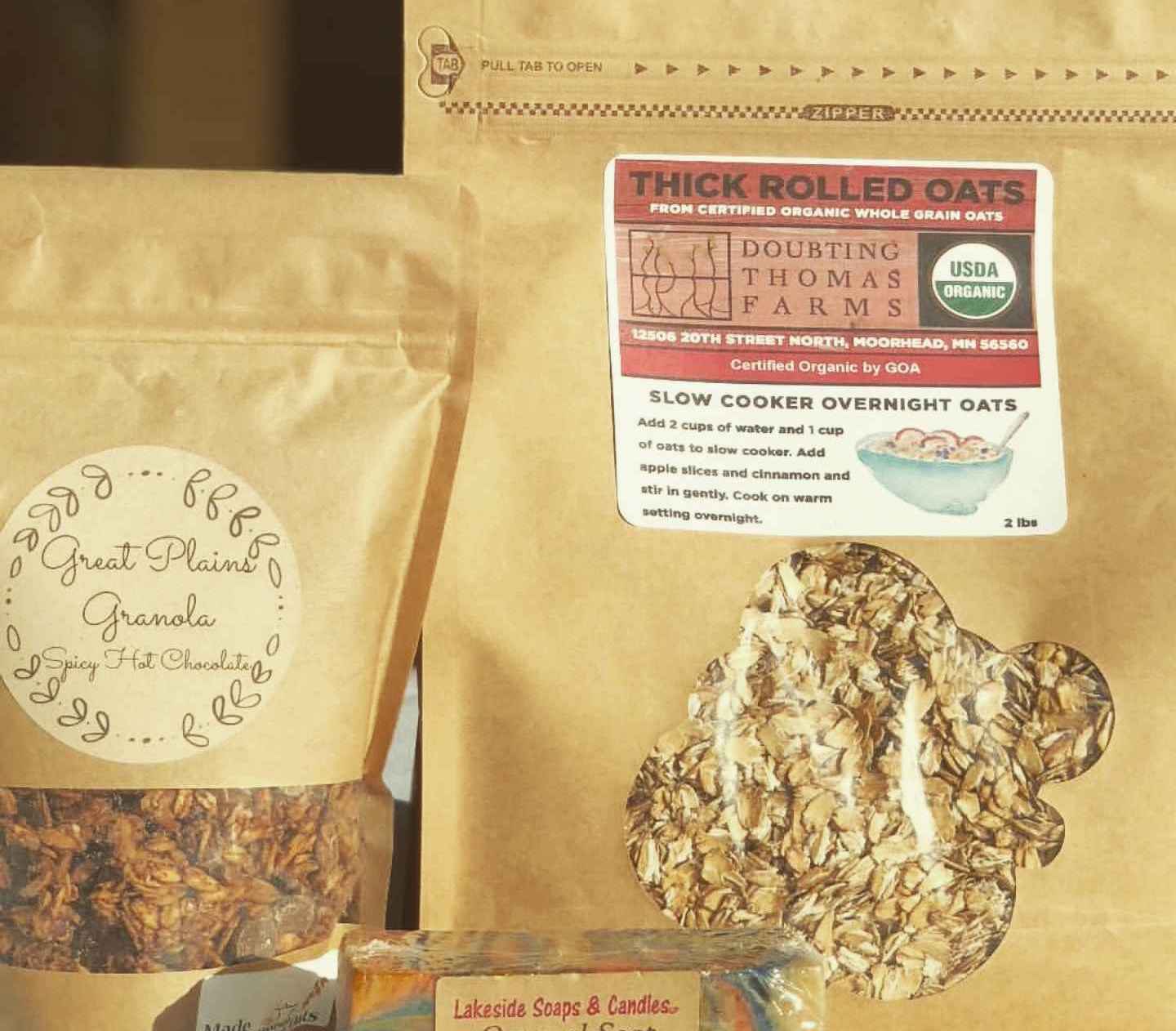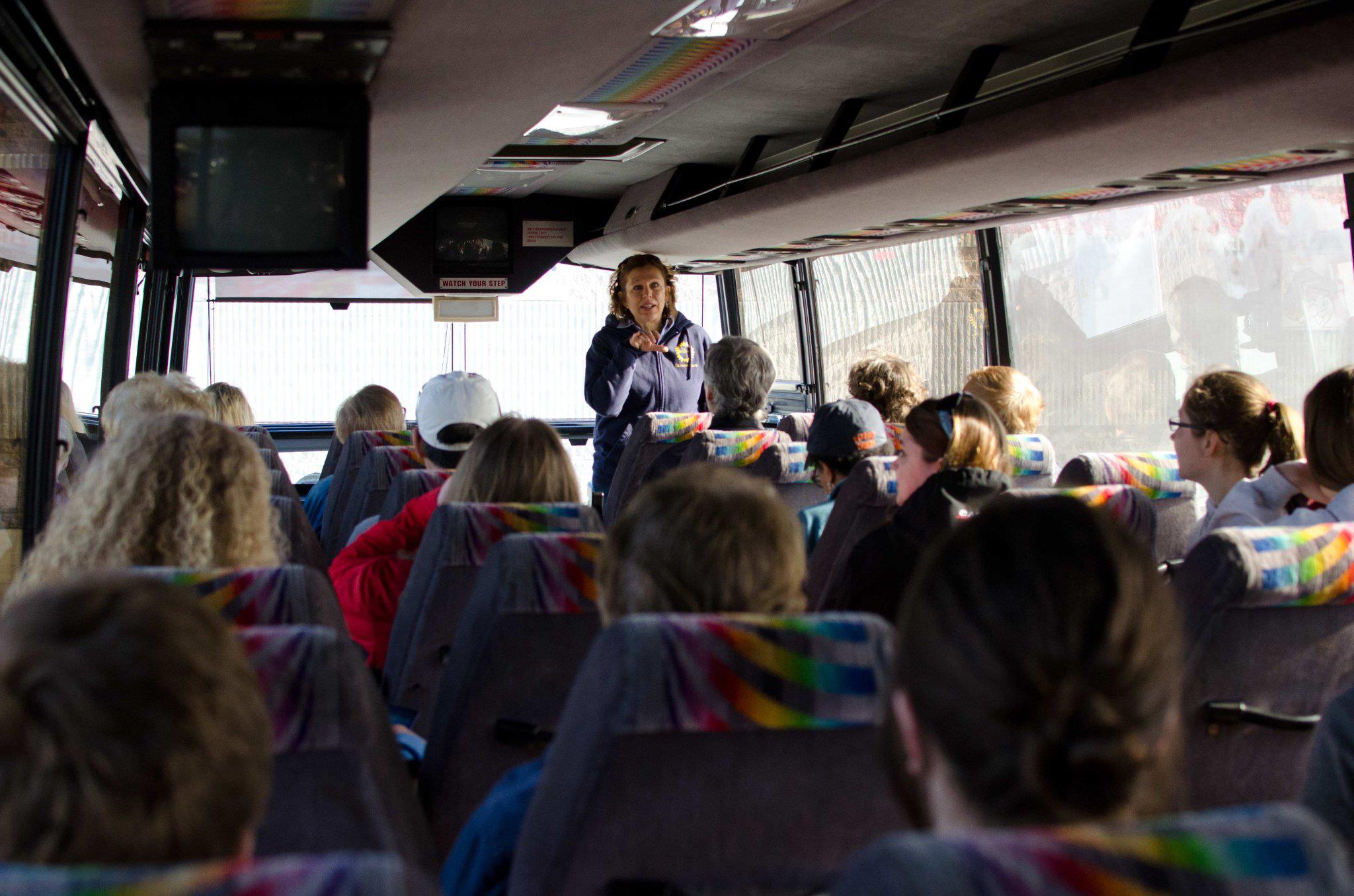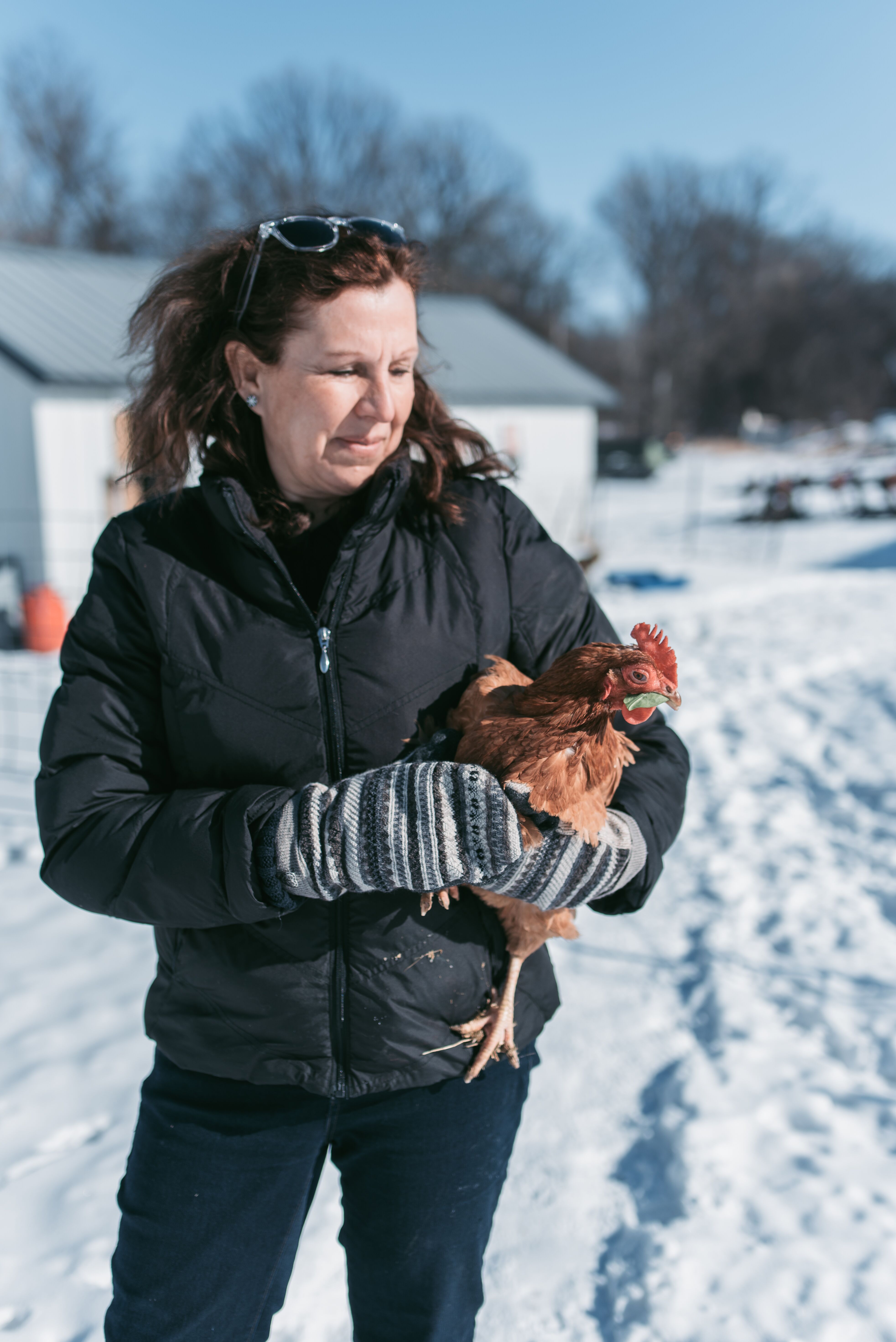After 140 years in business, Doubting Thomas Farms has gained such a reputation that Noreen and Lee Thomas have been sought out by James Beard Award winning chefs and local foodies alike. Visitors who come to the farm in Moorhead, Minnesota, vary drastically in their farming experience, but everyone can find something to pique their interest: from pop-up classes to rolling your own oats. Frequent visitors include children experiencing homelessness, who come to learn about gardening and food. And last summer Dan Barber, the celebrated New York chef of Stone Barns at Blue Hill, came out to marvel at the farm’s freshly milled flour.
The farm, which has been in Lee’s family for five generations, is always buzzing with activity. Lee is primarily a corn farmer, growing blue and yellow corn for corn chips, but he also grows crops like soybeans that are exported to Asia and hay, which gets distributed to Organic Valley dairies across the U.S. Doubting Thomas Farm has a robust array of crops that are sold locally as well. In the last year, their products have made their way into a new local food cooperative, Prairie Roots Food Co-op, on whose steering committee Noreen serves.
The family’s foray into local food began about fifteen years ago when the three Thomas children, Brita, Evan and Carsten, were in grade school. The kids were raising natural, non-GMO pork as a 4-H project, when the family realized that they had too much to eat themselves. They approached a nearby chef, hoping that she would consider buying some. Looking back on that meeting, Noreen remembers trembling with nerves. “I was trying to be brave in front of the kids,” she laughs. “Back then, no one in this area was doing local food. It was foreign.” To their surprise, they were met with outright enthusiasm and the chef bought every hog they had. From there, the Thomas family began experimenting with other local food products. Noreen recalls the puzzlement of their friends: “People were kind of scratching their heads, saying ‘I don’t get it.’”
That experience launched their entry into local markets, and sparked a small business incubator for the Thomas kids. Throughout their youths, Carsten, Evan and Brita were each responsible for their own small on-farm businesses, some of which have become staples on Doubting Thomas Farms today. With Noreen and Lee as their “backers” they were able to raise eggs, poultry, mushrooms, oats, microgreens and berries. “We’ve learned a heck of a lot that way,” Noreen says. “That’s where their spending money came from throughout high school and college.” The kids were able to buy their first car from their profits.
Not every business endeavor was a success. The family had a brief stint raising dairy goats, for example, until they realized they were too much work for the kids. Noreen and Lee didn’t shy away from letting the kids experience failure; they wanted to be sure their children learned to be resilient. “Sometimes we don’t let people go through the process of failure,” Noreen says. “Even if it doesn’t work out, you still learned something. It’s like getting a merit badge, and then you move on.”
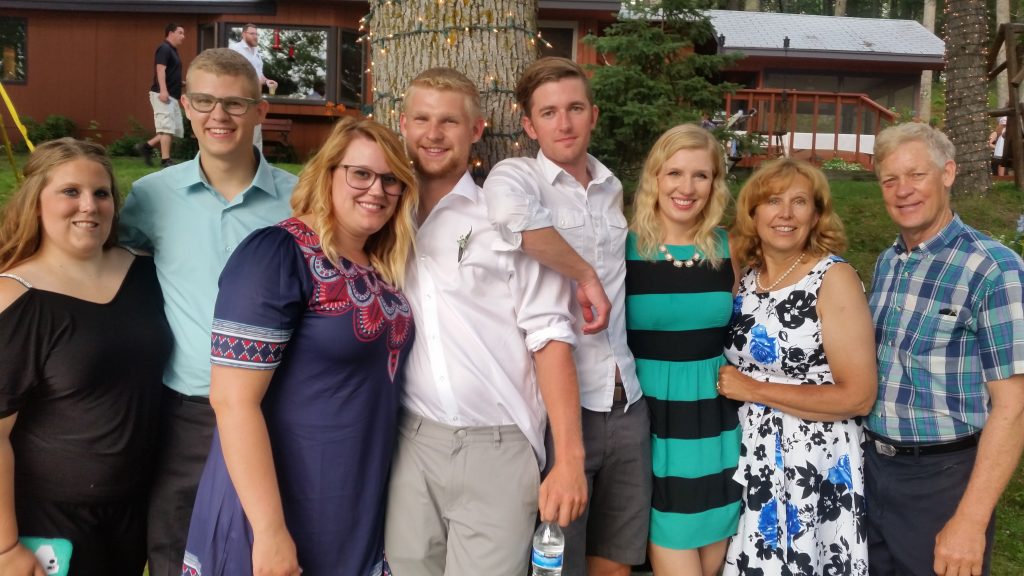
The Doubting Thomas Farms Family: Melany, Evan, Sarah Martinson, Carsten, Chris Mahrer, Brita, Noreen and Lee. Photo: Kyle Randall.
Soon Noreen got hooked on growing organically, not only because it was a good business opportunity, but because the chemical use in conventional agriculture worried her. Also, as Noreen puts it, Doubting Thomas needed to “get big, get a niche, or get out.” At the time, she explains, “Going organic was kind of a strange thing for our area. We’re smack dab in an area of conventional farming.” Her background in chemistry, microbiology and nutrition was helpful, but she recalls, “There was a big learning curve in the beginning.”
“Going organic was kind of a strange thing for our area. We’re smack dab in an area of conventional farming.”
Noreen and her kids took on the project devotedly, marveling at the twelve-foot-tall stalks the seeds produced. The corn is so nutrient dense, Noreen says, “It’s like taking a vitamin pill!” The project was led by the White Earth Land Recovery Project, whose mission is “to continue, revive, and protect our native seeds, heritage crops, naturally grown fruits, animals, wild plants, traditions, and knowledge of our indigenous and land-based communities.” Noreen and Carsten also supply rolled oats sold under White Earth Land Recovery’s label, Native Harvest.
Local heritage crops are some of the many assets that make this region a rich spot for curious farmers and foodies. “Most of the people who come are from within a hundred miles of us. But we’ve had people travel quite some ways to visit us,” Noreen says. She’s been leading tours for twenty years, and she attributes recent interest in visiting the farm to the loss of small farms all over the country. These days, fewer and fewer people have access to farmland and some of those visiting Doubting Thomas might have never before set foot on a farm.
When Noreen is running a class, on her farm or through Moorhead Community Education, her only prerequisites are “a happy attitude and some shoes you can get dirty.” Like her popular class on medicinal herbs called Nature’s First Aid, “The only thing attendees have in common is an interest in food.” Demographically, they’re a mixed bag, Noreen says, “but they are all just so excited to come out, be hands on and ask questions.” Her teaching subjects vary from beginning birding, to planting your own apple trees.
Noreen’s most popular class by far is the Local Foods Mystery Tour. Attendees show up in the morning with no idea of what the day could bring. Past tours have included stops at an ice wine vineyard, a dairy goat farm, and an Amish farm. “People are nuts about those tours,” she exclaims. “It’s so quirky. We fill up a whole bus and people have such a great time. One time we went to visit the Amish, and they were so welcoming that no one want to get back on the bus to leave.” The Amish farm families taught their visitors about milking cows by hand and sat down for coffee and desserts with them.
Noreen and her students have visited the White Earth Reservation as well, learning how to harvest corn and braid it in the traditional way. These cross-cultural excursions are extremely valuable for all those involved. Outsiders may not visit the reservation on their own, Noreen notes, so it is an opportunity to talk about issues that affect tribal people. Visitors can begin to understand their hosts’ stances on GMOs and get to know those struggling to protect their sacred land from pipelines and other energy development efforts.
Noreen’s skill at bringing people together has made her on-farm classes and local food tours extremely successful. Gregarious and outgoing, she makes friends wherever she is, making her the perfect ambassador to showcase her region’s abundant farm and food traditions. In the sixth generation of the Thomas family and in the people Noreen teaches, these traditions will live on.
